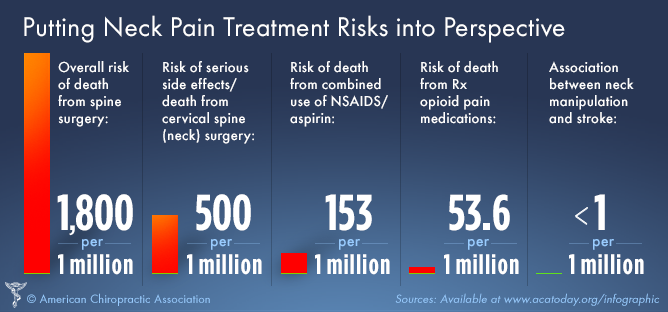The Influence Of Diet On Neck And Back Pain Management: Foods To Integrate And Foods To Omit
The Influence Of Diet On Neck And Back Pain Management: Foods To Integrate And Foods To Omit
Blog Article
Material Produce By-Russo Camp
When it comes to managing your pain in the back, the food choices you make can dramatically influence how you really feel daily. Picture being able to ease your pain merely by adjusting what you eat. By recognizing the duty of nutrition in back pain administration and recognizing which foods to integrate or avoid, you can take aggressive actions towards a much healthier and more comfortable way of living. The link in between nourishment and back health is much more extensive than you might realize-- let's check out how certain foods can either relieve or worsen your neck and back pain.
Value of Nourishment in Pain In The Back
Nourishment plays an essential duty in managing pain in the back. https://www.biospace.com/article/healthcare-discount-plan-market-to-witness-steady-expansion-during-2021-2031/ can significantly affect swelling degrees and overall discomfort levels in your back. Consuming a balanced diet abundant in nutrients like vitamins D and K, calcium, magnesium, and omega-3 fats can help in reducing swelling and reinforce bones, which are vital for back health and wellness.
In addition, preserving a healthy and balanced weight with correct nourishment can reduce tension on your spine, lowering the risk of back pain.
In addition, particular nutrients like antioxidants discovered in fruits and vegetables can aid battle oxidative stress and anxiety and promote recovery in the body, including the back muscle mass and back.
On the other hand, eating excessive quantities of refined foods, sugary beverages, and undesirable fats can contribute to swelling and weight gain, worsening pain in the back.
Foods to Consume for Back Health And Wellness
To support a healthy back, including nutrient-rich foods right into your daily meals is crucial. Including foods high in anti-oxidants like berries, spinach, and kale can help reduce inflammation in your back, relieving discomfort and discomfort. Omega-3 fats discovered in fatty fish such as salmon and mackerel have anti-inflammatory residential or commercial properties that can benefit your back wellness.
Additionally, consuming nuts and seeds like almonds, walnuts, and chia seeds supplies crucial nutrients like magnesium and vitamin E, which sustain muscle mass function and lower oxidative tension. Incorporating lean proteins such as chicken, turkey, and tofu can aid in muscle fixing and maintenance, promoting a strong back.
just click the following page to include dairy products or strengthened plant-based options for calcium to sustain bone health. Finally, moisten with a lot of water to maintain your spine discs moisturized and operating ideally. By consisting of these nutrient-dense foods in your diet, you can nurture your back and support overall spine health and wellness.
Foods to Prevent for Pain In The Back
Select staying clear of refined foods high in added sugars and trans fats when looking for relief from back pain. These types of foods can add to swelling in the body, which may worsen neck and back pain. Say no to sweet treats sweet, breads, and sweet drinks, along with junk food products like hamburgers, french fries, and fried hen that are often loaded with trans fats.
Furthermore, stay away from foods consisting of high levels of refined carbs, such as white bread, pasta, and pastries, as they can increase blood sugar levels and potentially aggravate swelling in the body.
It's additionally important to restrict your consumption of foods high in hydrogenated fats, like red meat and full-fat milk items, as they can add to swelling. Processed foods like delicatessens meats, chips, and packaged snacks are often high in saturated fats and should be consumed in small amounts.
Final thought
In conclusion, taking note of your diet plan and making smart food options can have a significant effect on managing neck and back pain. By including nutrient-rich foods like berries, fatty fish, nuts, and lean proteins, and preventing refined and sugary things, you can help reduce swelling and support generally back health. Bear in mind, what you consume plays a vital role in exactly how you feel, so make sure to prioritize your nutrition for a much healthier back.
